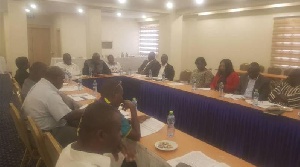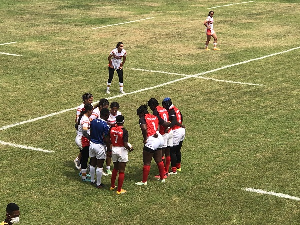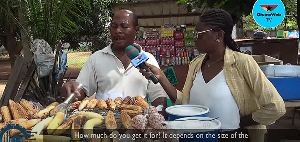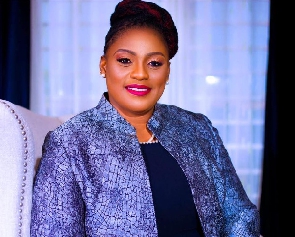The Domestic Violence and Victims Support Unit (DOVVSU) of the Ghana Police Service and stakeholders held a day’s validation workshop on Sexual Gender Based Violence (SGBV) Case Protocol and Codified Handbook on Laws use by DOVVSU for Standardised Case Management.
The Codified Handbook highlights, the legitimate procedures or duties that case officers of both DOVVSU and the Police Service would follow during the handling of a SGBV cases.
The workshop brought together representatives from the Ministry of Gender and Social Protection, the Attorney General’s Office, Heads of DOVVSU Units and the Police.
Chief Superintendent Felix Koku Mawusi (Rtd), one of the Authors of the handbook said, it was made to give case officers guidelines to follow when dealing with cases of SGBVs.
He said the book would help law enforcement officers in legal and successful prosecution of perpetrators of SGBVs, adding that “This handbook highlights the code of conducts, procedures, steps, and the laws involved in dealing with cases of sexual gender based violence, starting from the moment the victim gives a statement to the point when the case is sent to court through the Attorney General.”
Chief Superintendent Mawusi said a lot of consultations were held with key stakeholders to review the best practices of other West African countries and adopted them into this handbook.
He said: “It is necessary to say that none of this will be enforceable without the law, so we have highlighted the laws that deal with SGBVs in Ghana.”
Chief Superintendent Reverend Lawrencia Akorli, National Coordinator of DOVVSU said, the book would teach case officers on how not to re-victimize victims of sexual gender based violence.
She said there were times when police officers in charge of such cases, blame victims for being violated, which was a re-victimization of the said victim.
“The reason why we are putting this book together is to first enable all police officers to have access to this book in times of emergencies, and places where DOVVSU is not present, they can go through and familiarise themselves with the procedures involved in handling a victim of a gender based violence, domestic violence or all other related violence cases that falls within the mandate of DOVVSU”.
Chief Superintendent Akorli said the benefit of the handbook to the general public would be receiving the same treatment DOVVSU officers would have given to them.
She revealed that the Domestic Violence Act of 2007, section 732, subsection 3 stated that, ‘Victims of SGBVs accompanied by police officers to conduct medical examinations to establish the occurrence of an abuse, must be treated free of charge’ and that payment for medical examinations by Victims was illegal.
“However medical form for domestic violence filled and sent to hospitals requested that an amount of GHC 2.50 be paid to the hospital by the Heads of Police Stations where the report or complaint was made.”
According to the DOVVSU National Coordinator, the evidence the police would present to the court is based on the signed medical form by a doctor proving that the said victim was indeed abused.
“So it is necessary that the medical examination be performed. The reason why doctors ask for fees from the police or Attorney General, I think is because they have to appear in court to testify and not because of the medical examination they are expected to perform on victims to establish that fact”,
The Handbook Is funded by the United Nations Populations Fund (UNFPA), and is expected to be launched on Thursday, December, 21, 2017.
Regional News of Monday, 18 December 2017
Source: ghananewsagency.org

















